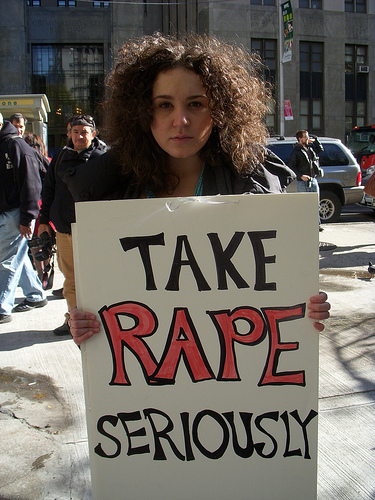 AL JAZEERA – Sexual assault within the ranks of the military is not a new
problem. It is a systemic problem that has necessitated that the
military conduct its own annual reporting on the crisis.
AL JAZEERA – Sexual assault within the ranks of the military is not a new
problem. It is a systemic problem that has necessitated that the
military conduct its own annual reporting on the crisis.
A 2003 Air Force Academy sexual assault scandal prompted the department of defense to include a provision in the 2004 National Defense Authorization Act that required investigations and reports of sexual harassment and assaults within US military academies to be filed. The personal toll is, nevertheless, devastating.
Military sexual trauma (MST) survivor Susan Avila-Smith is director of the veteran’s advocacy group Women Organizing Women. She has been serving female and scores of male clients in various stages of recovery from MST for 15 years and knows of its devastating effects up close.
“People cannot conceive how badly wounded these people are,” she told Al Jazeera, “Of the 3,000 I’ve worked with, only one is employed. Combat trauma is bad enough, but with MST it’s not the enemy, it’s our guys who are doing it. You’re fighting your friends, your peers, people you’ve been told have your back. That betrayal, then the betrayal from the command is, they say, worse than the sexual assault itself.”
On December 13, the American Civil Liberties Union (ACLU) and other groups filed a federal lawsuit seeking Pentagon records in order to get the real facts about the incidence of sexual assault in the ranks.
The Pentagon has consistently refused to release records that fully document the problem and how it is handled. Sexual assaults on women in the US military have claimed some degree of visibility, but about male victims there is absolute silence.
Click to read the full article on rape in the US military.
Article by Dahr Jamal
Photograph by WeNews
Research support was provided by the Investigative Fund at The Nation Institute.
This is the first in a two part series on sexual harassment in
the US military. The second part in the series will be published in the
coming week.
© COPYRIGHT AL JAZEERA, 2011










